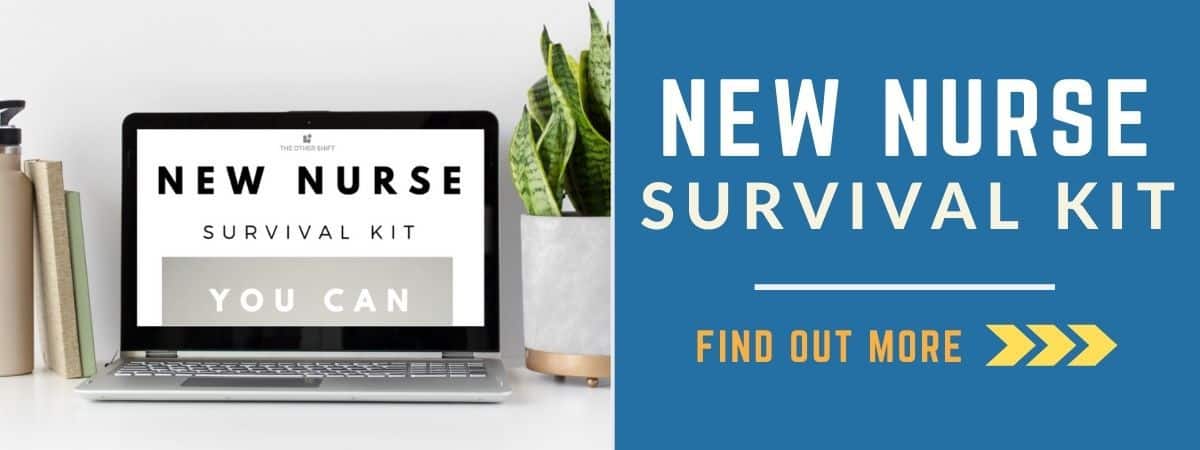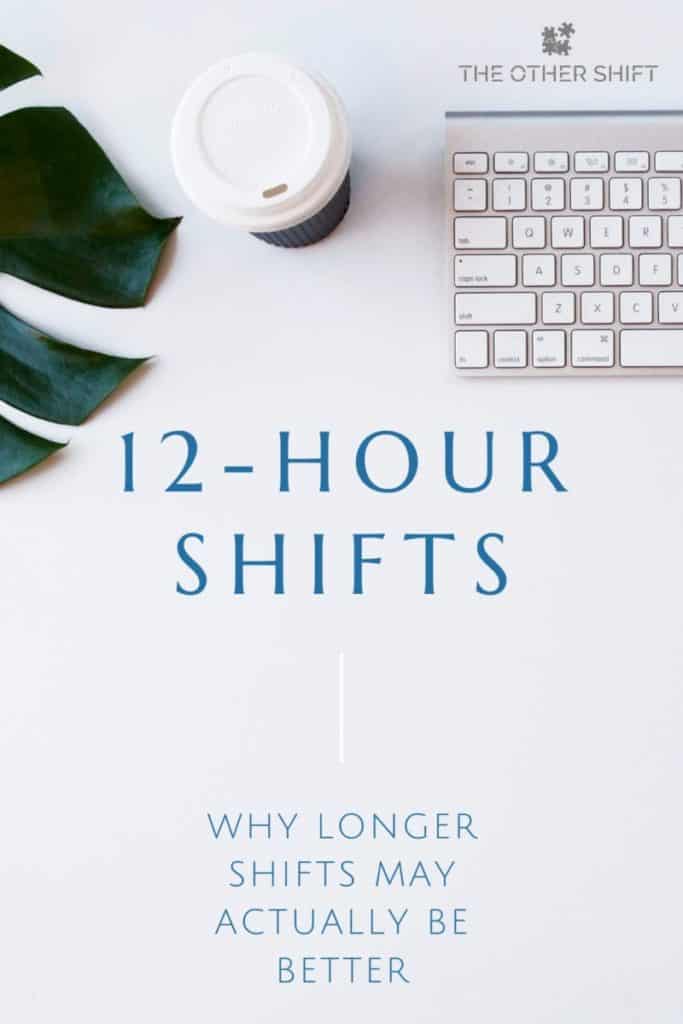Disclosure: This page may contain affiliate links, meaning we receive a commission if you decide to make a purchase through our links, but this is at no additional cost to you. Please read our disclosure and privacy statement for more info.
Many industries have demand from consumers/patients that require production around the clock. Manufacturing, first responders, hospitals, care-takers, military, even the local gas station. The most efficient way to staff such a demand is having employees work twelve-hour shifts. But is it worth it for everyone concerned?

12 hour shifts do have benefits for the business, employee and customer. Business can operate for longer periods with less staff turnover, staff can get access to potentially higher wages and more days away from the office and customers have increased access to good and services!
With this high demand, production can rarely stop; thus, they have to operate twenty-four hours a day, seven days a week, fifty-two weeks a year. Working twelve-hour shifts has some benefits typically not associated with other types of shifts. They also play a unique role with a different outlook than positions that only require an eight-hour shift.
Benefits of Working 12-Hour Shifts: A Manager’s Perspective:
Why are we writing about the manager’s perspective when this is about you, the employee? Understanding the goals of your supervisor can bring more benefit to you, if for no other reason than you can align your goals with your manager’s needs.
More importantly, in understanding the why behind the need for the shift, you can identify points where you can make the job easier for yourself, your co-workers, and your supervisor. As you read through, consider aspects of your job and why there is a need for working twelve hours a day. Then consider points wherein you can help.
Turnover Time:
During shift changes, there tends to be some degree of production loss, something you’re more out to see when it involves manufacturing. For first-responders and law enforcement, it means reduced staffing. During shift changes, these individuals could be passing off end-of-day reports to the next shift.
The more shift changes there are, the more moments of reduced staffing there are, the higher likelihood of someone needing assistance, but no one is available.
Maybe it’s in a hospital: Constant shift changes could mean patients aren’t getting the proper care they need or they continually have to learn who the new nurse is on shift.
From a manager’s perspective: Limiting shift changes can lead to higher production yields in manufacturing; more available personnel for first-responders and law enforcement to provide aide for emergencies; in hospitals, it can provide a higher quality of care of patients.

Consistent Staffing:
Managers need to be able to staff their shifts. When it comes to working twelve-hour days, employees are less likely to call in sick, as they have to use more vacation time. This means the managers can have a more reliable workforce, in turn for you, fewer days working short-staffed.
Regardless of the length of the shift, working short-staffed always places a more significant burden on the employees left on shift. If fewer people are absent from work, it means a lighter workload for you, even though your shift is twelve hours.
More Time for the Employees:
Compared to an eight-hour day, a supervisor has a limited amount of time from taking over from the previous day or starting the day. They have fewer opportunities to address various aspects of their job before turning the job over to the next crew.
Supervisors with a smaller timeframe don’t always have time in the day-to-day to stop and speak with employees. Whereas, those supervisors working twelve-hours shifts with their employees can potentially take more time to educate and / or address any concerns they may have.
The additional time with your supervisor not only helps them, but it makes it possible to address concerns you might have too. It can mean they have extra time to coach or train you. It also means more time discussing your future career goals and gaining from their insights.
[VIDEO] – Will Your Next 12-Hour Shift Ruin You? We Need to Talk
Summary: A Managers Perspective
Your management team has metrics they need to achieve. They’re staffing to keep production going to meet the needs of the customers while giving you as proper of a work-life balance as possible.
In some instances, it might be more challenging than others, but there is typically some degree of compensation. Such as, if you’re working twelve hours on the night on the weekend, chances are, you’re going to miss out on a lot of social events. However, your manager needs to staff this timeframe, and in exchange, they’ll pay a higher rate to those working these types of hours.
See what benefits your company provides, look into what your manager needs. There could potentially be opportunities available by making the change to help fill these high-demand roles.

Benefits of Working 12-Hour Shifts: From the Employee’s Perspective
Now we’ve covered the perspective from management, it time to find out information on the real reason you’re here – how 12 hour shifts really benefit you!
Pay:
There’s no doubt about it, working a twelve-hour shift is long. It’s *literally* half the day. Out of twenty-four hours, you’re working twelve of them. Employers typically recognize this and are willing to pay more for those committed to these longer shifts.
Depending on how your shift lines up, you’ll probably also earn weekend-differential and possibly night-time differential.
Additionally, you might work three twelve-hour shifts and one six-hour shift. Workplaces that need to stay going may divide its staff up like this, giving you forty-two hours a week. On top of the differential pay, you are also earning a few hours of overtime every week.
If you are working three 12-hour shifts in a row, this post titled, 10 Helpful Tips to Survive 3 Brutal 12 Hour Shifts in a Row will be a huge help.

Days Off:
Companies vary in how they schedule their staff with twelve-hour shifts, but reasonably consistent is the extra time off. You’re still going to be working forty-plus hours a week, but you get them done in a shorter daily timeframe, leaving you with more time off.
Some places might do four twelve-hour shifts one week, then three twelve-hour shifts the next week. Alternating the weeks like this will consistently give you the three days off, but every other week you’ll also have a fourth day off. Allowing you to plan mini-vacations or schedule appointments without using much of your valuable vacation time.
If you have a schedule that is three twelve-hour shifts and one six-hour shift, then you’re still getting three days off every week. Working a variation of this schedule puts you somewhere around fifty-two to seventy-eight extra days off than others who work eight-hour shifts. That’s huge!
Here’s a related post about whether 8 Hour Shifts Better Than 12? We’d love to know what you think!
Savings Potential:
Commuting:
Depending on your drive and various factors, this can vary in the outcome. Let’s talk money first, then we’ll talk time, as it pertains to saving time.
A quick search on Google will provide many resources, including information from the Department of Transportation. They provide a brief statistic outline that shows the average person drives about twenty-nine miles a day; other sources show people commute sixteen miles one way every day.
Suppose your average commute is around thirty miles per day roundtrip. Again, using information from the Department of Transportation, the average miles per gallon is approximately thirty miles. Essentially, you’re using a full gallon of gas, give or take, per day to commute. If you multiply that over a year, it could be somewhere between $150 and $260 saved.
It probably doesn’t sound like a lot, but come a time if something needs a quick fix or if it’s the holidays and you’d like to have a little extra money, it can make a difference.
Moving away from money and onto time, the average commute is about thirty minutes. Yes, some are shorter, and others are longer. It’s easy to do the math. If you have one less day a week you drive to work and your average commute one way is thirty minutes, you’re now saving fifty-two hours per year. Of course, this doesn’t include the time spent getting ready for work either.
Related post: How to Prepare for Your First 12 Hour Night Shift

Eating Expenses:
People vary on what they do, but either way, when working twelve-hour shifts, you’re planning for one day less than most.
If it’s easier to buy something at your work’s cafeteria, you’re now saving that amount of money multiplied by fifty-two. Some may argue that you’ll spend that money anyway, but if you’re at home because it’s your day off, it will be easier not to spend that money.
You don’t have to worry about packing a lunch and you can get away with eating leftovers you would otherwise have to reheat with the oven.
If you’re someone who prefers to prep their meals in advance, you’re prepping one day less each week. So you’re saving more time, more money, more energy. You only need to plan for three to four days.
If you’re on a schedule where you work four days a week, but one of those days is only four to six hours, you can get away with a light snack.
Related post: 12 Valuable Meal Prep Tips for Busy Shift Workers
Stress:
Reducing the number of days you’re commuting to work means less time on the road and avoiding the craziness of the daily commute.
It’s one less day you have to plan around your shift. You’re getting your job done earlier in the week, so you have more time at the end of the week to relax.

How About A Perk On The Job?
If you’ve ever worked in a place with heavy machinery like a warehouse or a factory, you’re probably familiar with the Lock-Out-Tag-Out system. Imagine the time and headache of safely turning over a job to the new shift when just a few extra hours and the job would be complete.
Working twelve-hour shifts can give you the extra hours needed to complete more complex tasks without handing the job over to the new shift. Or maybe it’s a task you’re not too keen on handing off to someone, so you wish to stay and see it completed. Of course, then you’re denied staying late to complete the task. Again, if you’re on a twelve-hour shift, you could potentially have that extra time you need.
12-Hour Shift Comradery:
Working eight hours will go by quickly, most likely, too quick to get to know your co-workers. When you’re working twelve hours, you have more time to get to know them, more time to develop friendships, and more time to create a team cohesiveness.
There is also the inherent push to socialize with your co-workers, as it is a long shift, and there are times where you may find yourself watching the clock. With not much else to do, there is the opportunity to engage in thoughtful conversations with co-workers.
On the flip side, those who work as a gas station attendants don’t often have this luxury! You can read more about this type and work in an entertaining and honest post here.

Breaks:
The typical break time for an eight-hour shift is thirty to sixty minutes for lunch with two fifteen-minute breaks with the first one a few hours into the shift and the second a few hours before the end.
Understandably, working twelve hours can be grueling, which is why most management is okay with and even schedule additional and more extended break time.
Depending on the industry, the job, and many other factors, it may be entirely up to the employees to manage break time.
Related post: How Can I Lose Weight Working 12-Hour Night Shifts?
Running Errands:
Everyone has errands to do and people typically do them on the weekend. Having an extra day during the week, you will have less of a crowd to compete with, and you can avoid using vacation time to schedule important appointments.
For parents, it means they can consistently have time to help their kids with sport, medical appointments, projects, and other activities. Parents can save larger projects for their days off when they are well-rested and more effective.
With many major school activities taking place on the weekend, parents working twelve-hour shifts at the beginning of the week can be there for their kids. Instead of missing them as they head off to prom, they are there to help them get ready for the whole night.
Related Post: How To Stay Fit While Working Night Shift: 12 Sneaky Tips

School:
More and more people are attending school later in life; they’re considered non-traditional students or “mature age” students. The drawback is that college has been slow to adapt to these students. Which means some required classes are only available during the day.
With an extra day out of the week, it can mean scheduling those needed courses that are not available at any other time.
While there are night classes, it may be challenging to speak to a professor about the course or talk to an advisor. With a bonus day off, you can schedule that time to meet with them; or meet with other classmates for a class project.
Summary: From the Employee’s Perspective
There are many reasons for working a twelve-hour shift, and there are many perks to it.
The points made above are examples of what you can potentially take advantage of if you’re moving to a twelve-hour shift.
If you’re already working a twelve-hour shift, you might be familiar with some of the above information. Either way, take it and review some of the many advantages you have working a twelve-hour shift. Advantages others don’t have.
If you’re trying to decide on changing shifts, read back through and give some thought to the advantages listed above. Keep in mind; this is only a small portion of what you can take advantage of by working longer hours.

Benefits of Working 12-Hour Shifts: The Customer Perspective
Continuity of Care:
Starting with Continuity of Care because it is far more relatable to people than most other situations. Being in a hospital can be stressful enough while you’re trying to heal. Having to remember who is on shift because of frequent changes can make it more stressful than it needs to be. There is less overlap repeating the same care and interrupting the patient.
If you’re working a twelve-hour shift, your patient can come to rely on who is there to help, as opposed to wondering who is there to help. More so, you’re able to give the proper care needed to them. If you’re working an eight-hour shift, you’re limited in the time you have to get your work done before the next shift arrives. However, if you have an extra four hours, you’re able to get your job done, not stress, and provide proper care to your patients.
Serving the Customer:
Depending on the specific job, people may not see the customer they are serving, but those customers rely on them. This is most predominant in areas related to the medical industry, such as hospitals, first-responders, medical-manufacturing companies.
An example of this could be the production of dialyzers for patients. These devices are in high demand and only increasing. People on dialysis have to go into a clinic several times a week and for several hours at a time to have their blood filtered. These devices are life-sustaining devices for people with kidney failure.
Of course, the dialysis industry isn’t the only medical device out there. Many manufacturing companies have to operate continuously to keep up with the demand for other life-saving devices.
It’s not just manufacturing, but it’s personal care in hospitals or rehab centers. Patients need someone there all the time. People rely on around-the-clock care, which would be difficult to manage with constant shift changes.
Then there are the first-responders. If someone is calling in an emergency, the last thing they want to hear is that there is no one available. More than likely, cities have a working plan to handle emergencies when they’re short-staffed. Still, it would be devastating to someone to hear no one is available at the moment; worse; they’re not available because of another shift change.

Summary: The Customer Perspective
Customers are grateful their needs are taken care of by those who work longer hours. When a shift-change can easily delay a response, slow production, or not fully care for someone, the outcome can be anywhere for a minor inconvenience to a devastating tragedy.
Working in these positions means taking on a role to serve people in an area that is more than likely, in high-demand. Otherwise, everyone could clock out and go home for the night. If you’re a person who enjoys serving others, try to see the perspective and the gratitude of the customer.
Even if you’re working in a manufacturing plant and you may not ever see the customer, find the fulfillment you get by serving in a high-demand job.
Summary: 12-hour Shift Benefits
There are different perspectives to consider when moving to a twelve-hour shift or if you are on it. Some of the information here might be something people have not considered or realized; for some, it was the deciding factor to change shifts.
Others may be dreading the move to working long hours; those already working twelve-hour shifts might have grown discouraged about it. Regardless of the category you may be in, hopefully, this article has helped steer you towards an improved outlook of what is possible by working a twelve-hour shift.
Whatever you decide to do, take this information as a helpful guide to make an informed decision. There are ideas you might not have thought about before. Maybe there is a perspective you’re missing. Re-read it, get the information, and make an informed decision.
If you’re already working the shift, then re-read through the article and see what you take advantage of. Read through the portion from the customer’s perspective to gain a clearer idea of what it is you’re doing and know the significance of your work.
If you feel stuck at your job, read through the portion about the manager’s perspective. Consider their responsibilities and how you can align your goals with their goals, which is easier to do when you have more time to engage with them throughout the day.
No matter what, there are definite perks to working a twelve-hour shift compared to those who work eight hours. Can the work-day be long? Yes. Can it seem like time has stopped still? Yes. Will you encounter times where you think about how you would be home already? Yes. Then you’ll get to your extended weekend and have more time to relax.
You’ll have a unique degree of flexibility others won’t. You’ll spend more time with your co-workers getting to know them and, in turn, making the work-day far more pleasant.
Enjoy the twelve hours and enjoy the nearly two extra months off work others won’t have, but you do. Take advantage of the unique flexibility and get more down around the house or take mini-vacations. Stay up late an extra night when everyone else has to go to bed. Go for that late-night drive because everyone is sleeping and you have the road to yourself.
Cheers,

Disclosure: This page may contain affiliate links, meaning we receive a commission if you decide to make a purchase through our links, but this is at no additional cost to you. Please read our disclosure and privacy statement for more info.





Hello and greetings
My name is Amir Arad, I am the production manager of a steel factory. Our personnel were working in four 8-hour shifts until a few years ago, but I decided to change the shifts to 12 hours, which resulted in positive results.
The advantages and effects of the 12-hour shift are as follows:
Increasing productivity and efficiency: during 8-hour shifts, only the day shift of people had sufficient efficiency, and the evening and night shifts did not have sufficient efficiency due to the fact that they were busy with family and personal activities during the day, but in the 12-hour shifts, when a person’s work day It is fully available to the group and the night shifts also require energy since 12 hours of continuous work, most of the personnel have had enough rest at home.
Reducing the number of driving accidents: Considering that the service traffic is carried out in a 12-hour shift at 7:00 AM and 7:00 PM, the drivers have enough alertness, but in 8-hour shifts, especially in the night shifts, when the service is performed from 11:00 PM to 01:00 AM, most of the drivers He does not have enough awareness and causes accidents. From 6 quasi-accident cases per year to 1 case per year (due to snowfall and slippery roads).
Reduction of critical and accident-prone times: shift change times, which are dangerous times, and in most industrial environments, both inside and outside the country (the BP incident in the Gulf of Mexico), critical times are shift change intervals.
Increase of Bresnel’s mastery of the work environment: Due to the 12-hour presence of Bresnel in the work environment, Bresnel has more control over the work environment and equipment, and damages are detected in the golden times before the equipment situation becomes acute, which the number of unit stops and breakdowns indicates this. is the subject
Reducing the number of postponement of work and increasing the protection and life of equipment: the operating personnel often stop working at the end of the work shift due to writing reports and changing clothes and shift due to the timing of traffic services and postpone it to the next shift and the next shift. It takes about 1 hour to arrive at the workplace, and this wasted time has a significant impact on the equipment, but in a 12-hour shift, the number of shift changes is reduced from 3 to 1, and all work is completed during the day or night shift. According to production reports, the average of 25 cases per month has been reduced to 3 cases, and these 3 cases were related to the time between 2 and 5 in the morning, when there was a risk of accidents during work.
Increasing the morale of the personnel: because the number of shifts is less and the intervals between two shifts are reduced, they have more rest time and are working with a higher morale.
Reducing the time wasted by personnel in the service: Sabzevar route to Pars Foulad factory is 55 km, which takes an average of one hour for each route. Personnel in 12-hour shifts spend 22 hours less on the way, which is equivalent to two hours. It is a work shift.
Removing statistics of extortion from Bresnel: in 8-hour shifts, because Bresnel arrived in the city from 01 to 01:30 in the morning and had to walk for at least 10 minutes to get home, he was subjected to extortion and several cases of theft of phones, wallets and belongings had occurred
Enhancing the morale of children and spouses: in Bresnel’s 8-hour shifts, they were working away from their families 4 nights out of every 6-day cycle (in the evening shifts, they arrived home at 1 a.m. and during the night shifts, they were not completely with their families), which 4 Night work was reduced to 1 night in a 4-day work cycle, which according to the survey, the presence of a person at night had a great impact on the mood of the spouses and children and even the families of the parties.
Reduction in the number of personnel leave and no need to move shifts: due to the reduction of shifts from 23 shifts to 15 shifts per month, personnel need less leave and only take leave when traveling or when a serious problem occurs, as a result of the problem Finding a replacement and one of the previous concerns of the personnel has been solved, and often the amount of the remaining leave passes the ceiling and is removed. Also, the 40% reduction in vacations has reduced the overtime pay of the personnel
Solving marital and family problems: One of the important challenges of occupational health and safety, especially in relation to industry, is work shifts that can have many negative consequences for this group. Therefore, marital satisfaction, intimacy and sexual performance of working married people are affected by shift work [2]. Married personnel, because they were not at home during the 8-hour shifts of the 6-day work cycle, 4 nights, mostly took their spouses to their father’s house in order to keep their wives safe, and according to the statements of 80% of married people, this issue caused an increase in interference in life issues. There were some disputes that have been solved by reducing the number of night workers
The significant effects of changing the shift to 12 hours has resulted in the satisfaction of 97% of the shift personnel of Pars Foulad Sabzevar factory, and in addition to reducing potential accidents and risks, according to the analyzes conducted, it has increased productivity and efficiency in production, as well as reducing downtime and equipment damage. Is.
12 Hour shifts suck. Your first day off is sleep and catch up. Which is not a vacation. Not to mention when you have young children.
1. You won’t see them for 3 days when working 3 12’s let alone 4 12’s.
2. Who’s going to watch and raise them with your values while you and the wife work?
3. People fought for the straight 40 hour work week. Now we have to start that fight again.
4. I’m not a “Boomer” I’m 27 with a college education with 2 small children.
5. These shifts wreak havoc on your body. Well that’s when you have responsilities and can’t sleep all day on your first day off and just have to keep going. With stuff like children, doing finances, cleaning your house, house maintenance, and vehicle maintenance.
Fight for your right to have a life and a healthy one at that.
Hi Mick… Thanks for taking the time to write in. 12 hour shifts aren’t ideal for everyone’s home situation and it sounds like you are struggling to find that right mix. I hope our website was able to provide you with some advice / tips to allow you more quality family time – above all else, this is what’s most important from our perspective!
We wish you all the best on your 12 hour journey.
Cheers,
Daniel & Emma